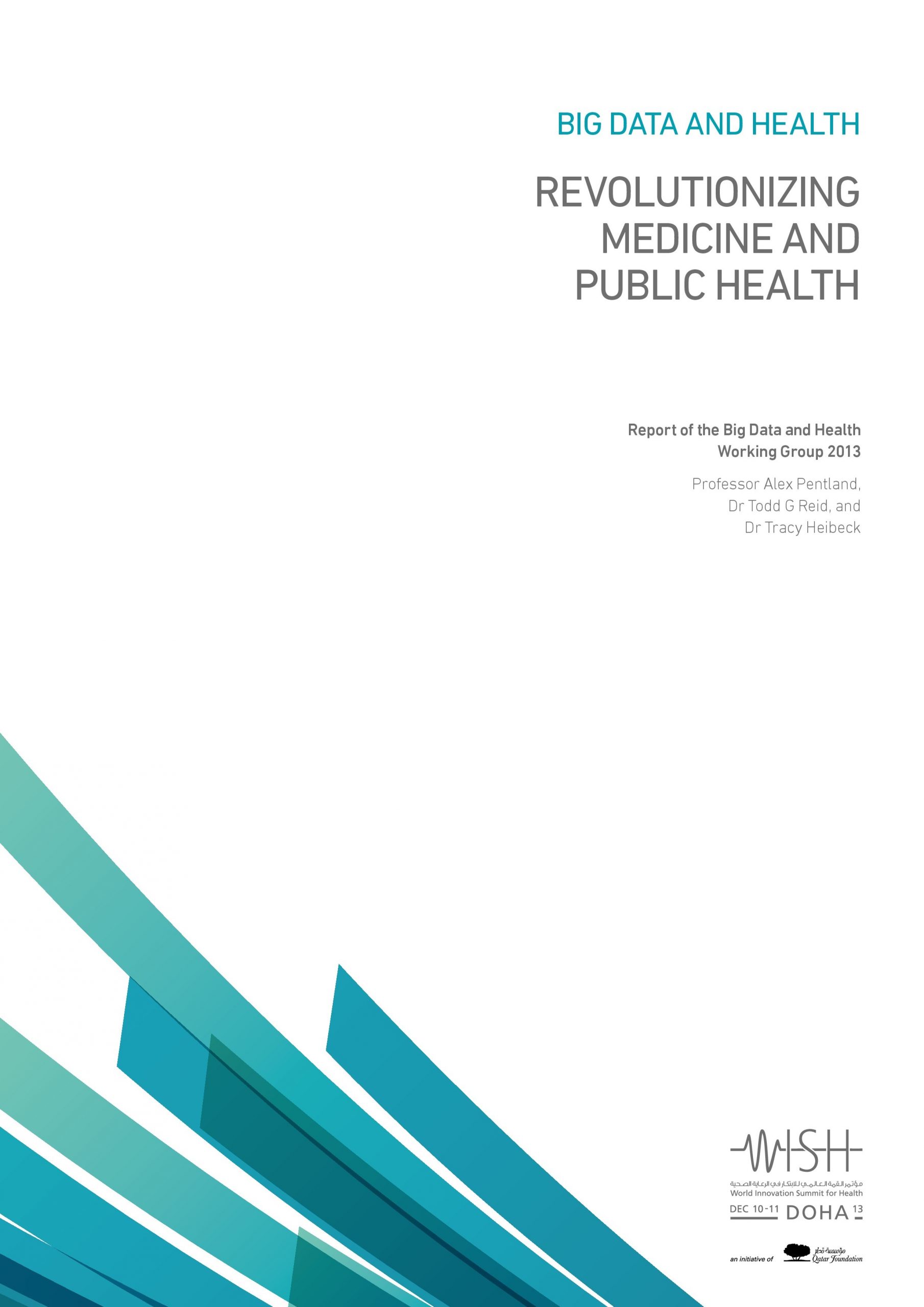Today we live our lives in digital networks. Around the world, we wake up in the morning, check our messages, make a quick phone call, and commute to work with our cell phone checking in at each passing cell tower. All of these transactions leave behind digital breadcrumbs – tiny records of our daily experiences that together comprise what we call “big data”. These digital crumbs offer us a view of our lives, both individually and collectively, that adds important new dimensions to health records, demographic data, and genetic data. While there is great potential to be realized by linking and aggregating data from patients and healthcare providers around the world to uncover population health patterns, there may be even greater benefits from linking and utilising non-health, behavioural data. Big data has now reached every sector in the global economy. Awash with data, the traditional stakeholders from the healthcare industry have struggled to turn these data into information that guides care decisions more effectively. “Big data” technological innovations propel us into a data-driven frontier in public health and medicine: petabytes of raw information about social interactions, activity levels, travel patterns and shopping habits, combined with existing health data, have the potential to greatly enhance the opportunities to predict long-term conditions and identify non-traditional intervention points, as well as to design better diagnostics tools, prevent diseases, and increase access to – and reduce the costs of – healthcare. The potential extends far beyond enabling more efficient hospital and public health systems but so far, this has mostly remained a theoretical possibility due to a number of barriers including privacy and data ownership issues. There are emerging best practice examples, however, which have begun to demonstrate the potential of these largely untapped health and behavioural data. The purpose of the Big Data Forum is therefore to provide a framework to inform discussion, summarise existing best practices, highlight the remaining barriers, and develop policy recommendations to overcome these hurdles.
Professor Alex ‘Sandy’ Pentland
Alex `Sandy’ Pentland directs MIT’s Human Dynamics Laboratory and the MIT Media Lab Entrepreneurship Program, co-leads the World Economic Forum Big Data and Personal Data initiatives, and is a founding member of the Advisory Boards for Nissan, Motorola Mobility, Telefonica, and start-up firms such as Ginger.io, CogitoHealth.com, and Sense Networks. He has previously helped create and direct MIT’s Media Laboratory, the Media Lab Asia laboratories at the Indian Institutes of Technology, and Strong Hospital’s Center for Future Health. In 2012, Forbes named Sandy one of the `seven most powerful data scientists in the world’, along with Google founders and the CTO of the United States, and in 2013 he won the McKinsey Award from Harvard Business Review. He is among the most-cited computational scientists in the world, and a pioneer in computational social science (including health science), organizational engineering, wearable computing (Google Glass), image understanding, and modern biometrics.

